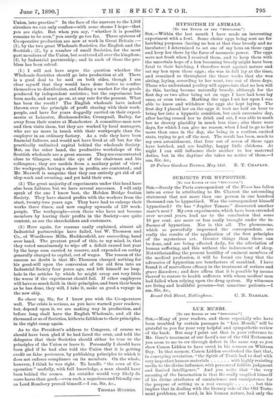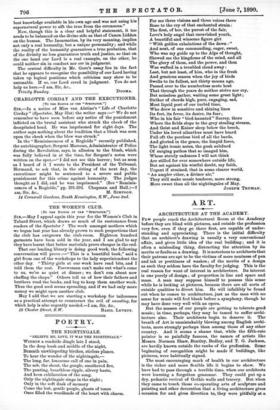LUX MUNDT.
[To THE EDITOR OF THE "SPECTATOR."]
SIR,—Many of your readers, and those especially who have been troubled by certain passages in "Lux Mundt" will be grateful to you for your very helpful and sympathetic review of the book. But may I point out that in your reference to Mr. Gore's treatment of our Lord's use of the Old Testament you seem to me to err through defect in the same way as you show Canon Liddon to have erred in his sermon on Whitsun Day. In that sermon, Canon Liddon overlooked the fact that, in conveying revelation, "the Spirit of Truth had to deal with very imperfect human materials with highly resisting media to the divine influence, with persons of fallible judgment and limited intelligence." And you write that " the very meaning of the Incarnation is that He really emptied himself of his divine attributes of omniscience and omnipotence for the purpose of setting us a real example but this implies that in dealing with the literary side of the Old Testa- ment problems, our Lord, in his human nature, had only the best knowledge available in his own age and was not using his supernatural power to sift the true from the erroneous." Now, though this is a clear and helpful statement, it too needs to be balanced on the divine side as that of Canon Liddon on the human. The Incarnation, by its very meaning, implies not only a real humsnity, but a unique personality; and while the reality of the humanity guarantees a true probation, that of the divinity no less guarantees truth and justice, so that on the one hand our Lord is a real example, on the other, he could neither sin in conduct nor err in judgment.
The central difficulty in Mr. Gore's essay lies in the fact that he appears to recognise the possibility of our Lord having taken up logical positions which criticism may show to be untenable. If so, our Lord erred in judgment. You do not help us here.—I am, Sir, &c.,





































 Previous page
Previous page